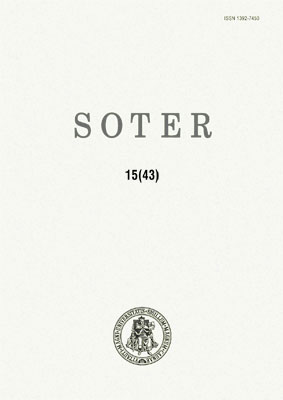Krikščioniškasis XIX a. lietuvių literatūros diskursas. Vyskupų retorika
Christian Discourse of the 19th Century Lithuanian Literature Bishops‘ Rhetorics
Author(s): Irena SkurdenienėSubject(s): Christian Theology and Religion
Published by: Vytauto Didžiojo Universitetas
Keywords: krikščioniškasis diskursas; didaktinė retorika; prakilnumo retorika; christian discourse; didactic rhetoric; solemn rhetoric
Summary/Abstract: Straipsnyje aptariama dviejų XIX a. rašytojų vyskupų – A. Baranausko ir M. Valančiaus retorikos ypatumai. Analizuojama didaktinės retorikos dominantė M. Valančiaus darbuose. Pristatomas A. Baranausko požiūris į religinę iškalbą, pagrįstas didumo kategorija, ieškoma prakilnumo retorikos apraiškų jo poetiniuose tekstuose. Teigiama, jog retorikos ypatumai atspindi estetines nuostatas ir vertybinę XIX a. vidurio kultūros orientaciją. An analysis of the rhetoric of two nineteenth century Lithuanian writers, two bishops – M. Valancius and A. Baranauskas, shows us several kinds of Christian discourse and the influence of religious texts on literary creation. The two bishops, who really influenced the social and psychological life of their era, had different personalities and psychological make-ups. The rhetoric of M. Valancius, which reflects the esthetics of the Enlightenment, was didactic rhetoric, based upon a long tradition of Christian education. The rhetorician-teacher emphasizes the asymmetrical aspect of teaching and a transparent, reciprocal model of rhetoric. For M. Valancius, the erudite are linked to the foundations of morality and express it in appropriate terms, accentuating the spatial and temporal dimensions of speech, and the receiver. The writings of A. Baranauskas reflect the classical tradition, but we can link them to the rhetoric of the Christian sublime. In his syllabi of homiletic studies, he elucidates the sacred function of the linguistic act and the grandeur of religious eloquence. His works show the grandeur of the human soul when it aspires to achieve harmony and to come into contact with God. The domination of religious values in the middle of the nineteenth century in no way diminishes the role of rhetoric in the social and cultural life of the period – when the political tribune falls silent, a Christian rhetorician speaks out. His status as a bishop lends authority to this tribune and broadens the scope and influence of Christian discourse.
Journal: SOTER: religijos mokslo žurnalas
- Issue Year: 43/2005
- Issue No: 15
- Page Range: 233-248
- Page Count: 16
- Language: Lithuanian

